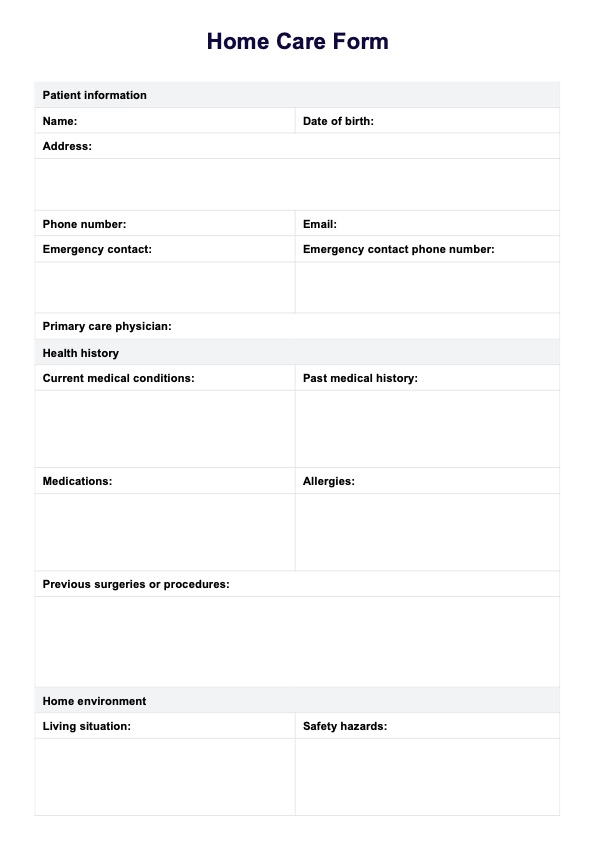It helps healthcare providers understand the patient's needs, create personalized care plans, and ensure efficient care coordination among all involved parties.

Home Care Form
Optimize your healthcare with our Home Care Form, ensuring streamlined processes and personalized care. Improve efficiency today!
Use Template
Home Care Form Template
Commonly asked questions
The home care call request form is typically filled out by the patient or their caregiver with assistance from healthcare professionals, as needed.
It should be updated regularly, primarily when changes in the patient's health status, medications, or care requirements, to ensure that the care plan remains current and effective.
EHR and practice management software
Get started for free
*No credit card required
Free
$0/usd
Unlimited clients
Telehealth
1GB of storage
Client portal text
Automated billing and online payments











